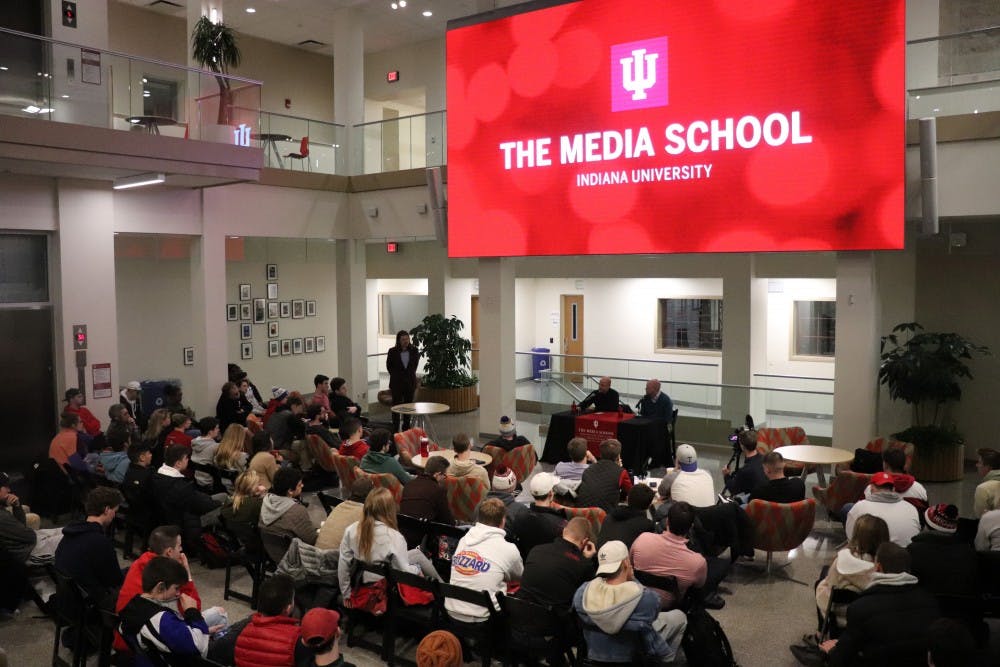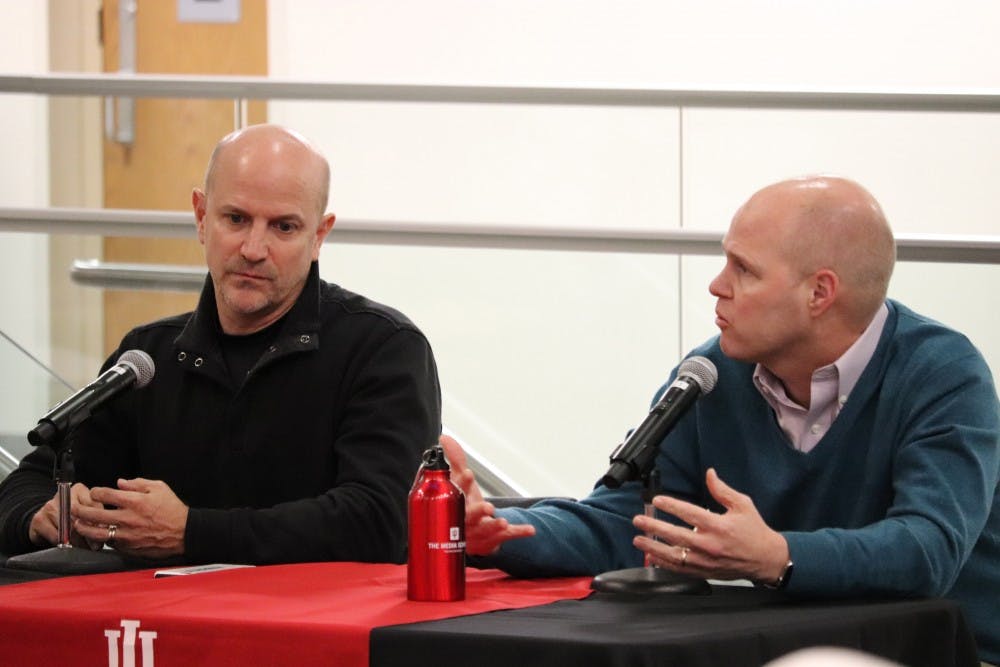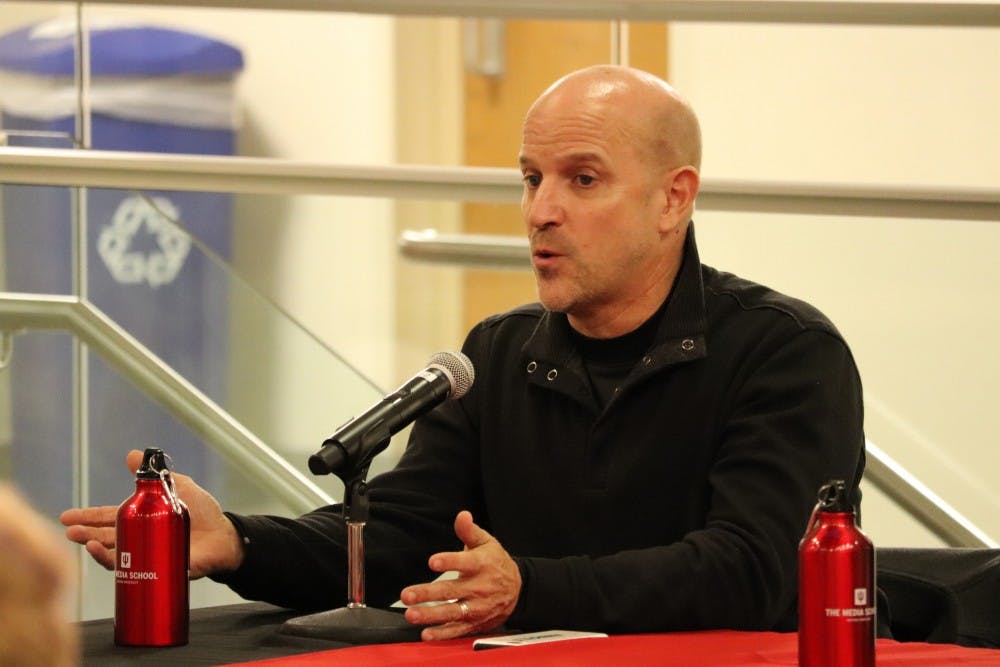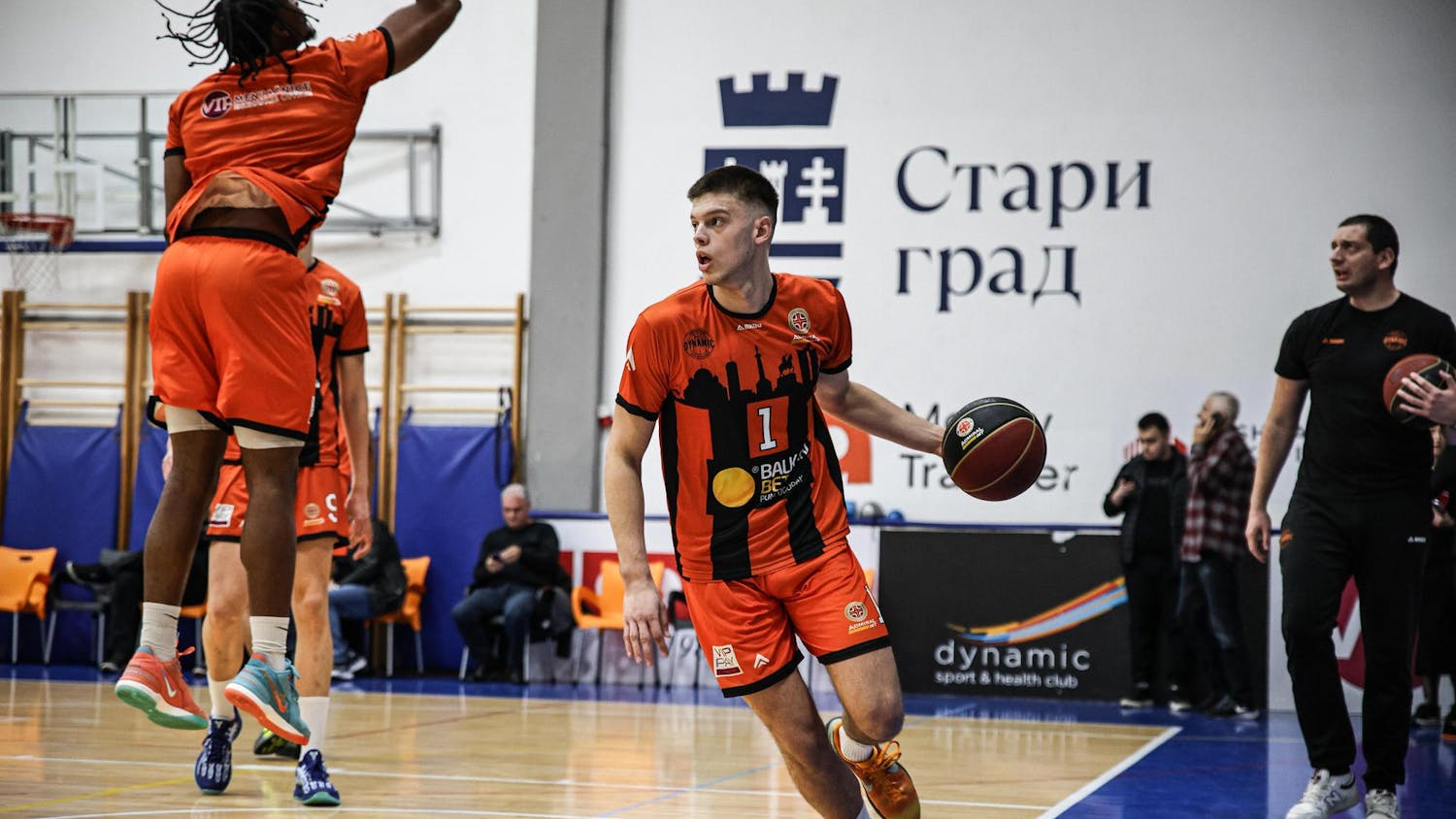As Robert Abbott sifted through documents and phone numbers, the work of renowned Washington Post reporters Carl Bernstein and Bob Woodward echoed throughout his office.
Abbott, then a producer for CNN, was in the thick of his investigation into player mistreatment allegations against IU head basketball coach Bob Knight.
For inspiration, he left Alan Paluka’s masterpiece, “All the President’s Men,” playing incessantly on a big screen TV for weeks to serve as the subconscious background noise to his endeavor.
“It reminded me of all the times I picked up the phone and people wanted to hang it up, and I just wanted to buy time,” Abbott said. “I just wanted to keep them on there for 30 seconds, then two minutes, then all of a sudden it was two hours and they had told me everything.”
Monday night, alongside ESPN Films vice president and executive producer John Dahl, Abbott screened his own journalistic feature, ESPN 30 for 30 documentary “The Last Days of Knight,” to nearly 200 students and faculty members in the Franklin Hall Commons.

The film delves into the complex legacy left by Bob Knight and the scandal that tarnished his exit from IU through the eyes of Abbott’s original reporting from the late 1990s and early 2000s.
Throughout the months that Abbott tracked this tale, he uncovered the grander societal issues of a misguided individual’s inability to adapt, the abuse of power and the systematic ineptitude that allowed rampant mistreatment to flourish.
“It was the most difficult thing I’ve ever done because for 30-something years, I’ve always been behind the scenes, coaching the talent, coaching the person, or going and doing all the interviews and piecing it together” Abbott, who narrated and directed the film, said. “But you never hear my voice. You never hear my name.”
Dahl initially conceptualized the piece. He and Abbott had been friends for 30 years, dating back to their time as production assistants at CNN Sports. After pitching what became the ESPN film “Catholics vs. Convicts,” Abbott was named an executive producer for the project.
At first, he was perturbed about losing directorship of his own idea. But Dahl insisted they needed someone closer to the story in order to tell it right. He also noted Abbott had his own saga to detail.
“It was a lot asking a person who reported, produced a story to now direct it themselves and narrate it themselves,” Dahl said. “But he made it work.”

Buried in the basement of Abbott’s home is a plastic, off-navy blue bin. Inside are countless notebooks, recordings and other mementos from his investigation into Knight. Inside this bin was his story.
“I just sat down with a blank legal pad and starting writing moments that I remembered and moments that I thought showed an audience what a journalist really does,” Abbott said. “And that became the spine of the film.”
For longtime Hoosiers, Knight remains a legend. His dismissal from the program persists as a controversial talking point from Valparaiso, Indiana, to New Albany, Indiana. But Knight’s misdeeds were far from the initial premise for Abbott’s story.
Steve Robinson, CNN’s managing editor and Abbott’s boss at the time, charged his reporter with discovering why prized prep stars Jason Collier, Neil Reed and Luke Recker had left the program in recent years.
Robinson and Abbott expected a story on AAU basketball, the exposure high school phenoms had begun to receive and how the youth couldn’t handle the demands of an old-time ball coach like Knight.
That narrative quickly shifted.
As Abbott arrived in Bloomington, a handful of calls led him to believe this story was far more than just prima donna high schoolers. In an hour and a half chat with Reed, the former IU guard alleged widespread mental and physical abuse by Knight, including being choked by his former coach at practice.
“I remember flying into Bloomington, looking out the window as we’re landing, wondering if he was telling me the truth,” Abbott said.
Though the story centered on Reed’s incident with Knight, among a few other episodes, Abbott’s film paints a larger reality of the coach’s far-reaching power.
In a state comprised of thousands of rural agrarians and little in the way of major cities, Knight’s hard-nosed approach became a symbol for the working class citizens of the Hoosier state. It’s through this lens that viewers can understand the responses to the allegations holistically.
When Reed went public with his charge that Knight had choked him, critics were swift to dismiss his claims.
Former IU student Kent Harvey’s revelation that Knight had grabbed and berated him outside Assembly Hall, which violated the zero-tolerance policy IU President Myles Brand had bestowed upon the coach after the Reed allegations, led students to erupt into a frenzied riot.
The story also mentions an instance in which Knight purportedly demanded Brand leave Assembly Hall.
“There’s no one necessarily to blame,” Abbott said. “It happens in baby steps. You may have three different presidents over someone’s tenure. You may have four different athletic directors. And if each person lets a little thing go by after years and years of that, you can never go back.”
Perched on the steps of Assembly Hall soon after Knight’s firing had been made public, Abbott sat pondering who the Hoosiers’ next coach would be.
Then former IU Vice President Terry Clapacs approached him.
“He walked up to me and said, ‘Did you ever think this was going to happen?’ and I go, ‘I had no idea,’” Abbott said. “And he goes, ‘Neither did I.’”
Months of reporting had brought to light the dark and troubling side of a statewide icon. But as was the case with Woodward and Bernstein, Abbott never sought to “get” Knight or receive acclaim for his work. Rather, he was just doing his job.
“If you ever take a step back and say, ‘Oh, this is gonna be big, this is going to do this,’ you’re going to make a mistake,” Abott said. “Trust me. Don’t do it. Just keep reporting and keep reporting and keep reporting, and then 18 years later, do a film on it, and then you can look back.”
“The Last Days of Knight” has been available on ESPN+ since April, but a wider ESPN premiere is scheduled for 7:30 p.m. Thursday.




